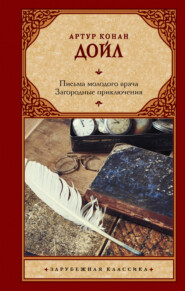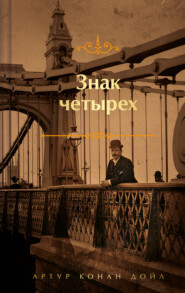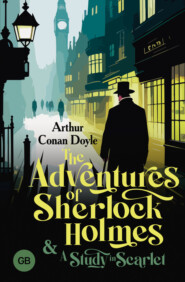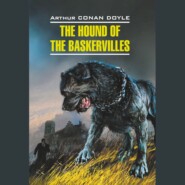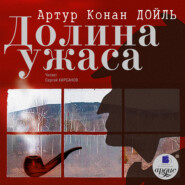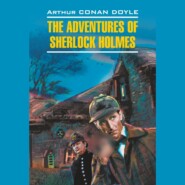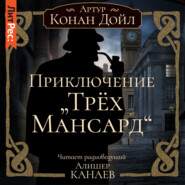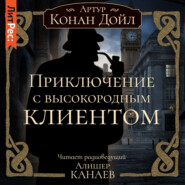По всем вопросам обращайтесь на: info@litportal.ru
(©) 2003-2024.
✖
The Captain of the Polestar, and Other Tales
Настройки чтения
Размер шрифта
Высота строк
Поля
The keeper pours out about half a pannikin of raw rum and hands it to the bushman. The moment he smells the old familiar smell his longing for it returns, and he swigs it off at a gulp. His eyes shine more brightly and his face becomes flushed. The keeper watches him narrowly. “You can go now, Jim,” he says.
“Steady, mate, steady,” says the bushman. “I’m as good a man as you. If you stand a drink I can stand one too, I suppose.” So the pannikin is replenished, and Jimmy’s eyes shine brighter still.
“Now, Jimmy, one last drink for the good of the house,” says the keeper, “and then it’s time you were off.” The stockman has a third gulp from the pannikin, and with it all his scruples and good resolutions vanish for ever.
“Look here,” he says somewhat huskily, taking his cheque out of his pouch. “You take this, mate. Whoever comes along this road, ask ‘em what they’ll have, and tell them it’s my shout. Let me know when the money’s done.”
So Jimmy abandons the idea of ever getting to town, and for three weeks or a month he lies about the shanty in a state of extreme drunkenness, and reduces every wayfarer upon the road to the same condition. At last one fine morning the keeper comes to him. “The coin’s done, Jimmy,” he says; “it’s about time you made some more.” So Jimmy has a good wash to sober him, straps his blanket and his billy to his back, and rides off through the bush to the sheeprun, where he has another year of sobriety, terminating in another month of intoxication.
All this, though typical of the happy-go-lucky manners of the inhabitants, has no direct bearing upon Jackman’s Gulch, so we must return to that Arcadian settlement. Additions to the population there were not numerous, and such as came about the time of which I speak were even rougher and fiercer than the original inhabitants. In particular, there came a brace of ruffians named Phillips and Maule, who rode into camp one day, and started a claim upon the other side of the stream. They outgulched the Gulch in the virulence and fluency of their blasphemy, in the truculence of their speech and manner, and in their reckless disregard of all social laws. They claimed to have come from Bendigo, and there were some amongst us who wished that the redoubted Conky Jim was on the track once more, as long as he would close it to such visitors as these. After their arrival the nightly proceedings at the Britannia bar and at the gambling hell behind it became more riotous than ever. Violent quarrels, frequently ending in bloodshed, were of constant occurrence. The more peaceable frequenters of the bar began to talk seriously of lynching the two strangers who were the principal promoters of disorder. Things were in this unsatisfactory condition when our evangelist, Elias B. Hopkins, came limping into the camp, travel-stained and footsore, with his spade strapped across his back, and his Bible in the pocket of his moleskin jacket.
His presence was hardly noticed at first, so insignificant was the man. His manner was quiet and unobtrusive, his face pale, and his figure fragile. On better acquaintance, however, there was a squareness and firmness about his clean-shaven lower jaw, and an intelligence in his widely-opened blue eyes, which marked him as a man of character. He erected a small hut for himself, and started a claim close to that occupied by the two strangers who had preceded him. This claim was chosen with a ludicrous disregard for all practical laws of mining, and at once stamped the newcomer as being a green hand at his work. It was piteous to observe him every morning as we passed to our work, digging and delving with the greatest industry, but, as we knew well, without the smallest possibility of any result. He would pause for a moment as we went by, wipe his pale face with his bandanna handkerchief, and shout out to us a cordial morning greeting, and then fall to again with redoubled energy. By degrees we got into the way of making a half-pitying, half-contemptuous inquiry as to how he got on. “I hain’t struck it yet, boys,” he would answer cheerily, leaning on his spade, “but the bedrock lies deep just hereabouts, and I reckon we’ll get among the pay gravel to-day.” Day after day he returned the same reply with unvarying confidence and cheerfulness.
It was not long before he began to show us the stuff that was in him. One night the proceedings were unusually violent at the drinking saloon. A rich pocket had been struck during the day, and the striker was standing treat in a lavish and promiscuous fashion which had reduced three parts of the settlement to a state of wild intoxication. A crowd of drunken idlers stood or lay about the bar, cursing, swearing, shouting, dancing, and here and there firing their pistols into the air out of pure wantonness. From the interior of the shanty behind there came a similar chorus. Maule, Phillips, and the roughs who followed them were in the ascendant, and all order and decency was swept away.
Suddenly, amid this tumult of oaths and drunken cries, men became conscious of a quiet monotone which underlay all other sounds and obtruded itself at every pause in the uproar. Gradually first one man and then another paused to listen, until there was a general cessation of the hubbub, and every eye was turned in the direction whence this quiet stream of words flowed. There, mounted upon a barrel, was Elias B. Hopkins, the newest of the inhabitants of Jackman’s Gulch, with a good-humoured smile upon his resolute face.
He held an open Bible in his hand, and was reading aloud a passage taken at random – an extract from the Apocalypse, if I remember right. The words were entirely irrelevant and without the smallest bearing upon the scene before him, but he plodded on with great unction, waving his left hand slowly to the cadence of his words.
There was a general shout of laughter and applause at this apparition, and Jackman’s Gulch gathered round the barrel approvingly, under the impression that this was some ornate joke, and that they were about to be treated to some mock sermon or parody of the chapter read. When, however, the reader, having finished the chapter, placidly commenced another, and having finished that rippled on into another one, the revellers came to the conclusion that the joke was somewhat too long-winded. The commencement of yet another chapter confirmed this opinion, and an angry chorus of shouts and cries, with suggestions as to gagging the reader or knocking him off the barrel, rose from every side. In spite of roars and hoots, however, Elias B. Hopkins plodded away at the Apocalypse with the same serene countenance, looking as ineffably contented as though the babel around him were the most gratifying applause. Before long an occasional boot pattered against the barrel or whistled past our parson’s head; but here some of the more orderly of the inhabitants interfered in favour of peace and order, aided curiously enough by the afore-mentioned Maule and Phillips, who warmly espoused the cause of the little Scripture reader. “The little cus has got grit in him,” the latter explained, rearing his bulky red-shirted form between the crowd and the object of its anger. “His ways ain’t our ways, and we’re all welcome to our opinions, and to sling them round from barrels or otherwise if so minded. What I says and Bill says is, that when it comes to slingin’ boots instead o’ words it’s too steep by half, an’ if this man’s wronged we’ll chip in an’ see him righted.” This oratorical effort had the effect of checking the more active signs of disapproval, and the party of disorder attempted to settle down once more to their carouse, and to ignore the shower of Scripture which was poured upon them. The attempt was hopeless. The drunken portion fell asleep under the drowsy refrain, and the others, with many a sullen glance at the imperturbable reader, slouched off to their huts, leaving him still perched upon the barrel. Finding himself alone with the more orderly of the spectators, the little man rose, closed his book, after methodically marking with a lead pencil the exact spot at which he stopped, and descended from his perch. “To-morrow night, boys,” he remarked in his quiet voice, “the reading will commence at the 9th verse of the 15th chapter of the Apocalypse,” with which piece of information, disregarding our congratulations, he walked away with the air of a man who has performed an obvious duty.
We found that his parting words were no empty threat. Hardly had the crowd begun to assemble next night before he appeared once more upon the barrel and began to read with the same monotonous vigour, tripping over words! muddling up sentences, but still boring along through chapter after chapter. Laughter, threats, chaff – every weapon short of actual violence – was used to deter him, but all with the same want of success. Soon it was found that there was a method in his proceedings. When silence reigned, or when the conversation was of an innocent nature, the reading ceased. A single word of blasphemy, however, set it going again, and it would ramble on for a quarter of an hour or so, when it stopped, only to be renewed upon similar provocation. The reading was pretty continuous during that second night, for the language of the opposition was still considerably free. At least it was an improvement upon the night before.
For more than a month Elias B. Hopkins carried on this campaign. There he would sit, night after night, with the open book upon his knee, and at the slightest provocation off he would go, like a musical box when the spring is touched. The monotonous drawl became unendurable, but it could only be avoided by conforming to the parson’s code. A chronic swearer came to be looked upon with disfavour by the community, since the punishment of his transgression fell upon all. At the end of a fortnight the reader was silent more than half the time, and at the end of the month his position was a sinecure.
Never was a moral revolution brought about more rapidly and more completely. Our parson carried his principle into private life. I have seen him, on hearing an unguarded word from some worker in the gulches, rush across, Bible in hand, and perching himself upon the heap of red clay which surmounted the offender’s claim, drawl through the genealogical tree at the commencement of the New Testament in a most earnest and impressive manner, as though it were especially appropriate to the occasion. In time, an oath became a rare thing amongst us. Drunkenness was on the wane too. Casual travellers passing through the Gulch used to marvel at our state of grace, and rumours of it went as far as Ballarat, and excited much comment therein.
There were points about our evangelist which made him especially fitted for the work which he had undertaken. A man entirely without redeeming vices would have had no common basis on which to work, and no means of gaining the sympathy of his flock. As we came to know Elias B. Hopkins better, we discovered that in spite of his piety there was a leaven of old Adam in him, and that he had certainly known unregenerate days. He was no teetotaler. On the contrary, he could choose his liquor with discrimination, and lower it in an able manner. He played a masterly hand at poker, and there were few who could touch him at “cut-throat euchre.” He and the two ex-ruffians, Phillips and Maule, used to play for hours in perfect harmony, except when the fall of the cards elicited an oath from one of his companions. At the first of these offences the parson would put on a pained smile, and gaze reproachfully at the culprit. At the second he would reach for his Bible, and the game was over for the evening. He showed us he was a good revolver shot too, for when we were practising at an empty brandy bottle outside Adams’ bar, he took up a friend’s pistol and hit it plumb in the centre at twenty-four paces. There were few things he took up that he could not make a show at apparently, except gold-digging, and at that he was the veriest duffer alive. It was pitiful to see the little canvas bag, with his name printed across it, lying placid and empty upon the shelf at Woburn’s store, while all the other bags were increasing daily, and some had assumed quite a portly rotundity of form, for the weeks were slipping by, and it was almost time for the gold-train to start off for Ballarat. We reckoned that the amount which we had stored at the time represented the greatest sum which had ever been taken by a single convoy out of Jackman’s Gulch.
Although Elias B. Hopkins appeared to derive a certain quiet satisfaction from the wonderful change which he had effected in the camp, his joy was not yet rounded and complete. There was one thing for which he still yearned. He opened his heart to us about it one evening.
“We’d have a blessing on the camp, boys,” he said, “if we only had a service o’ some sort on the Lord’s day. It’s a temptin’ o’ Providence to go on in this way without takin’ any notice of it, except that maybe there’s more whisky drunk and more card playin’ than on any other day.”
“We hain’t got no parson,” objected one of the crowd.
“Ye fool!” growled another, “hain’t we got a man as is worth any three parsons, and can splash texts around like clay out o’ a cradle. What more d’ye want?”
“We hain’t got no church!” urged the same dissentient.
“Have it in the open air,” one suggested.
“Or in Woburn’s store,” said another.
“Or in Adams’ saloon.”
The last proposal was received with a buzz of approval, which showed that it was considered the most appropriate locality.
Adams’ saloon was a substantial wooden building in the rear of the bar, which was used partly for storing liquor and partly for a gambling saloon. It was strongly built of rough-hewn logs, the proprietor rightly judging, in the unregenerate days of Jackman’s Gulch, that hogsheads of brandy and rum were commodities which had best be secured under lock and key. A strong door opened into each end of the saloon, and the interior was spacious enough, when the table and lumber were cleared away, to accommodate the whole population. The spirit barrels were heaped together at one end by their owner, so as to make a very fair imitation of a pulpit.
At first the Gulch took but a mild interest in the proceedings, but when it became known that Elias B. Hopkins intended, after reading the service, to address the audience, the settlement began to warm up to the occasion. A real sermon was a novelty to all of them, and one coming from their own parson was additionally so. Rumour announced that it would be interspersed with local hits, and that the moral would be pointed by pungent personalities. Men began to fear that they would be unable to gain seats, and many applications were made to the brothers Adams. It was only when conclusively shown that the saloon could contain them all with a margin that the camp settled down into calm expectancy.
It was as well that the building was of such a size, for the assembly upon the Sunday morning was the largest which had ever occurred in the annals of Jackman’s Gulch. At first it was thought that the whole population was present, but a little reflection showed that this was not so. Maule and Phillips had gone on a prospecting journey among the hills, and had not returned as yet, and Woburn, the gold-keeper, was unable to leave his store. Having a very large quantity of the precious metal under his charge, he stuck to his post, feeling that the responsibility was too great to trifle with. With these three exceptions the whole of the Gulch, with clean red shirts, and such other additions to their toilet as the occasion demanded, sauntered in a straggling line along the clayey pathway which led up to the saloon.
The interior of the building had been provided with rough benches, and the parson, with his quiet good-humoured smile, was standing at the door to welcome them. “Good morning, boys,” he cried cheerily, as each group came lounging up. “Pass in; pass in. You’ll find this is as good a morning’s work as any you’ve done. Leave your pistols in this barrel outside the door as you pass; you can pick them out as you come out again, but it isn’t the thing to carry weapons into the house of peace.” His request was good-humouredly complied with, and before the last of the congregation filed in, there was a strange assortment of knives and firearms in this depository. When all had assembled, the doors were shut, and the service began – the first and the last which was ever performed at Jackman’s Gulch.
The weather was sultry and the room close, yet the miners listened with exemplary patience. There was a sense of novelty in the situation which had its attractions. To some it was entirely new, others were wafted back by it to another land and other days. Beyond a disposition which was exhibited by the uninitiated to applaud at the end of certain prayers, by way of showing that they sympathised with the sentiments expressed, no audience could have behaved better. There was a murmur of interest, however, when Elias B. Hopkins, looking down on the congregation from his rostrum of casks, began his address.
He had attired himself with care in honour of the occasion. He wore a velveteen tunic, girt round the waist with a sash of china silk, a pair of moleskin trousers, and held his cabbage-tree hat in his left hand. He began speaking in a low tone, and it was noticed at the time that he frequently glanced through the small aperture which served for a window which was placed above the heads of those who sat beneath him.
“I’ve put you straight now,” he said, in the course of his address; “I’ve got you in the right rut if you will but stick in it.” Here he looked very hard out of the window for some seconds. “You’ve learned soberness and industry, and with those things you can always make up any loss you may sustain. I guess there isn’t one of ye that won’t remember my visit to this camp.” He paused for a moment, and three revolver shots rang out upon the quiet summer air. “Keep your seats, damn ye!” roared our preacher, as his audience rose in excitement. “If a man of ye moves down he goes! The door’s locked on the outside, so ye can’t get out anyhow. Your seats, ye canting, chuckle-headed fools! Down with ye, ye dogs, or I’ll fire among ye!”
Astonishment and fear brought us back into our seats, and we sat staring blankly at our pastor and each other. Elias B. Hopkins, whose whole face and even figure appeared to have undergone an extraordinary alteration, looked fiercely down on us from his commanding position, with a contemptuous smile on his stern face.
“I have your lives in my hands,” he remarked; and we noticed as he spoke that he held a heavy revolver in his hand, and that the butt of another one protruded from his sash. “I am armed and you are not. If one of you moves or speaks he is a dead man. If not, I shall not harm you. You must wait here for an hour. Why, you FOOLS” (this with a hiss of contempt which rang in our ears for many a long day), “do you know who it is that has stuck you up? Do you know who it is that has been playing it upon you for months as a parson and a saint? Conky Jim, the bushranger, ye apes. And Phillips and Maule were my two right-hand men. They’re off into the hills with your gold – Ha! would ye?” This to some restive member of the audience, who quieted down instantly before the fierce eye and the ready weapon of the bushranger. “In an hour they will be clear of any pursuit, and I advise you to make the best of it, and not to follow, or you may lose more than your money. My horse is tethered outside this door behind me. When the time is up I shall pass through it, lock it on the outside, and be off. Then you may break your way out as best you can. I have no more to say to you, except that ye are the most cursed set of asses that ever trod in boot-leather.”
We had time to endorse mentally this outspoken opinion during the long sixty minutes which followed; we were powerless before the resolute desperado. It is true that if we made a simultaneous rush we might bear him down at the cost of eight or ten of our number. But how could such a rush be organised without speaking, and who would attempt it without a previous agreement that he would be supported? There was nothing for it but submission. It seemed three hours at the least before the ranger snapped up his watch, stepped down from the barrel, walked backwards, still covering us with his weapon, to the door behind him, and then passed rapidly through it. We heard the creaking of the rusty lock, and the clatter of his horse’s hoofs, as he galloped away.
It has been remarked that an oath had, for the last few weeks, been a rare thing in the camp. We made up for our temporary abstention during the next half-hour. Never was heard such symmetrical and heartfelt blasphemy. When at last we succeeded in getting the door off its hinges all sight of both rangers and treasure had disappeared, nor have we ever caught sight of either the one or the other since. Poor Woburn, true to his trust, lay shot through the head across the threshold of his empty store. The villains, Maule and Phillips, had descended upon the camp the instant that we had been enticed into the trap, murdered the keeper, loaded up a small cart with the booty, and got safe away to some wild fastness among the mountains, where they were joined by their wily leader.
Jackman’s Gulch recovered from this blow, and is now a flourishing township. Social reformers are not in request there, however, and morality is at a discount. It is said that an inquest has been held lately upon an unoffending stranger who chanced to remark that in so large a place it would be advisable to have some form of Sunday service. The memory of their one and only pastor is still green among the inhabitants, and will be for many a long year to come.
THE RING OF THOTH
Mr. John Vansittart Smith, F.R.S., of 147-A Gower Street, was a man whose energy of purpose and clearness of thought might have placed him in the very first rank of scientific observers. He was the victim, however, of a universal ambition which prompted him to aim at distinction in many subjects rather than preeminence in one.
In his early days he had shown an aptitude for zoology and for botany which caused his friends to look upon him as a second Darwin, but when a professorship was almost within his reach he had suddenly discontinued his studies and turned his whole attention to chemistry. Here his researches upon the spectra of the metals had won him his fellowship in the Royal Society; but again he played the coquette with his subject, and after a year’s absence from the laboratory he joined the Oriental Society, and delivered a paper on the Hieroglyphic and Demotic inscriptions of El Kab, thus giving a crowning example both of the versatility and of the inconstancy of his talents.
The most fickle of wooers, however, is apt to be caught at last, and so it was with John Vansittart Smith. The more he burrowed his way into Egyptology the more impressed he became by the vast field which it opened to the inquirer, and by the extreme importance of a subject which promised to throw a light upon the first germs of human civilisation and the origin of the greater part of our arts and sciences. So struck was Mr. Smith that he straightway married an Egyptological young lady who had written upon the sixth dynasty, and having thus secured a sound base of operations he set himself to collect materials for a work which should unite the research of Lepsius and the ingenuity of Champollion. The preparation of this magnum opus entailed many hurried visits to the magnificent Egyptian collections of the Louvre, upon the last of which, no longer ago than the middle of last October, he became involved in a most strange and noteworthy adventure.
The trains had been slow and the Channel had been rough, so that the student arrived in Paris in a somewhat befogged and feverish condition. On reaching the Hotel de France, in the Rue Laffitte, he had thrown himself upon a sofa for a couple of hours, but finding that he was unable to sleep, he determined, in spite of his fatigue, to make his way to the Louvre, settle the point which he had come to decide, and take the evening train back to Dieppe. Having come to this conclusion, he donned his greatcoat, for it was a raw rainy day, and made his way across the Boulevard des Italiens and down the Avenue de l’Opera. Once in the Louvre he was on familiar ground, and he speedily made his way to the collection of papyri which it was his intention to consult.
The warmest admirers of John Vansittart Smith could hardly claim for him that he was a handsome man. His high-beaked nose and prominent chin had something of the same acute and incisive character which distinguished his intellect. He held his head in a birdlike fashion, and birdlike, too, was the pecking motion with which, in conversation, he threw out his objections and retorts. As he stood, with the high collar of his greatcoat raised to his ears, he might have seen from the reflection in the glass-case before him that his appearance was a singular one. Yet it came upon him as a sudden jar when an English voice behind him exclaimed in very audible tones, “What a queer-looking mortal!”
The student had a large amount of petty vanity in his composition which manifested itself by an ostentatious and overdone disregard of all personal considerations. He straightened his lips and looked rigidly at the roll of papyrus, while his heart filled with bitterness against the whole race of travelling Britons.
“Yes,” said another voice, “he really is an extraordinary fellow.”
“Do you know,” said the first speaker, “one could almost believe that by the continual contemplation of mummies the chap has become half a mummy himself?”
“He has certainly an Egyptian cast of countenance,” said the other.
John Vansittart Smith spun round upon his heel with the intention of shaming his countrymen by a corrosive remark or two. To his surprise and relief, the two young fellows who had been conversing had their shoulders turned towards him, and were gazing at one of the Louvre attendants who was polishing some brass-work at the other side of the room.
“Carter will be waiting for us at the Palais Royal,” said one tourist to the other, glancing at his watch, and they clattered away, leaving the student to his labours.
“I wonder what these chatterers call an Egyptian cast of countenance,” thought John Vansittart Smith, and he moved his position slightly in order to catch a glimpse of the man’s face. He started as his eyes fell upon it. It was indeed the very face with which his studies had made him familiar. The regular statuesque features, broad brow, well-rounded chin, and dusky complexion were the exact counterpart of the innumerable statues, mummy-cases, and pictures which adorned the walls of the apartment.
The thing was beyond all coincidence. The man must be an Egyptian.






